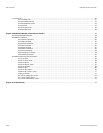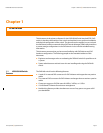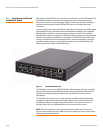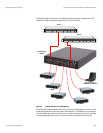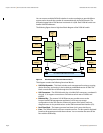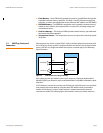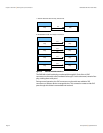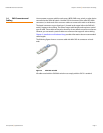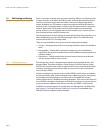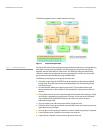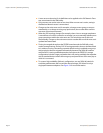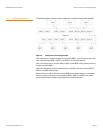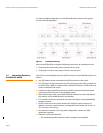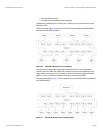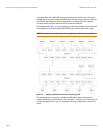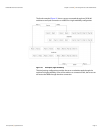
Page 12 LSI Corporation | September 2010
LSISAS6160 SAS Switch User GuideChapter 1: Overview
| SAS Routing and Zoning
1.5 SAS Routing and Zoning SAS is a connection-oriented, point-to-point technology. When a host (initiator) issues
a request to read or write data, the SAS6160 switch automatically determines how to
route the connection request from the initiator to the correct data storage device
(target). By default, any SAS initiator or target connected to the SAS6160 switch can
access any other connected initiator or target in the SAS domain, without restrictions.
However, because the SAS domain grows to include multiple hosts and multiple
storage volumes, you can segregate one host from another host, or restrict one host
from accessing storage owned by another host.
SAS zoning partitions the SAS topology to isolate selected hosts from each other, or to
allow selected hosts to access only selected storage volumes. The SAS6160 switch
supports the full SAS 2.0 T10 zoning model.
There are several benefits to zoning, which can be configured accordingly:
Security – Zoning prevents users from accessing information that is not available to
them.
Manageability – Zoning reflects operational categories, such as marketing or
engineering. Zoning also can partition hosts that run different operating systems, to
minimize conflicts.
Performance – Zoning enables faster boot time because the host must discover
only the storage within its zone or zones.
1.5.1 SAS Zoning Overview SAS zoning access control is implemented by linked switch/expander devices, with
zoning enabled. These devices define a Zoned Portion of a Service Delivery System
(ZPSDS). No host device intervention is required. Each zoning switch/expander device
maintains an identical zone permission table, so zone access control is maintained
across the entire ZPSDS.
Initiators and targets see only the portions of the ZPSDS to which they are assigned in
the zone permission table. These zoned portions are called zone groups. Zone groups
are activated when they belong to a set. When the set is enabled, the zoning is
enforced. When the set is disabled, the zoning disappears. There can be more than one
set in a ZPSDS, and initiators and targets can belong to more than one set, but only one
set can be active. In addition, there can be more than one ZPSDS in a SAS domain.
A ZPSDS has a zone manager for its configuration and management. The SDM utility
(see Chapter3, SAS Domain Manager Graphical User Interface) is embedded in the
SAS6160 switch to configure the zone manager.



